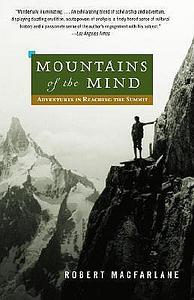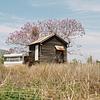You need to sign in or sign up before continuing.
Take a photo of a barcode or cover
slow-paced
adventurous
informative
reflective
Graphic: Injury/Injury detail
I find mountains fascinating, their geology, history, spiritual significance and how they seem to reign over humans both physically and psychologically.
There's discussion about fear and risk vs accomplishment and wonder at the beauty of the landscapes. How can a mountain have such a hold over someone that they are willing to put their life on the line? To go back again and again with the hope of summitting, seeing the danger as a worthwhile.
With his own ties to mountains and experience treking in the Alps, China and Kazakhstan, there's a mix of Macfarlane's personal stories that highlight the widespread love of mountains and mountaineering.
I find it so interesting that even if people don't go to mountains in person, that accounts such as this bring these adventures to the everyday person to experience in another way. The history and growth of the popularity and then commodification of mountaineering is something that I'd read about in Into Thin Air, so it was interesting to read more on this view.
I'd been wanting to read Underland for ages, but felt drawn to this book first and it's definitely made me excited to read more of Macfarlane's writing. The writing is engaging, informative and yet still poetic.
⛰
There's discussion about fear and risk vs accomplishment and wonder at the beauty of the landscapes. How can a mountain have such a hold over someone that they are willing to put their life on the line? To go back again and again with the hope of summitting, seeing the danger as a worthwhile.
With his own ties to mountains and experience treking in the Alps, China and Kazakhstan, there's a mix of Macfarlane's personal stories that highlight the widespread love of mountains and mountaineering.
I find it so interesting that even if people don't go to mountains in person, that accounts such as this bring these adventures to the everyday person to experience in another way. The history and growth of the popularity and then commodification of mountaineering is something that I'd read about in Into Thin Air, so it was interesting to read more on this view.
I'd been wanting to read Underland for ages, but felt drawn to this book first and it's definitely made me excited to read more of Macfarlane's writing. The writing is engaging, informative and yet still poetic.
⛰
adventurous
inspiring
reflective
medium-paced
adventurous
challenging
informative
mysterious
reflective
slow-paced
I love mountains, and in the absence of being able to visit them due to the pandemic or simple geography, I love reading about them. This book is a good, deep dive into Western/European cultural understanding of high places, and the Western/European development of "mountaineering". From the title/blurb/back cover (nothing Eurocentric) I expected a much more global, cross-cultural approach to the topic of humans' relationship with mountains. Many of the highest places on Earth are outside of Europe after all, and I would love to know more about how people and cultures in those regions related to high places, rather than a colonial understanding of how the Western/European explorer went out and discovered or conquered them. The climax of the book is a detailed account of Mallory's attempt on Everest, and pretty much the only references to Nepali and/or Tibetan understanding of the mountain is a four-line footnote on page 189. Overall, I liked the stories in the book, it just could have given us a lot more global, cultural, and colonial context.
This book was enchanting. Something I wish it could have focused on, and I get that may be a whole other book - are the indigenous folks who climbed these mountains first. For religious veneration or simply a way of life. I understand those feats are little to no records, but would prefer a wider perspective than simply white male “explorers”
adventurous
informative
medium-paced
A brilliant dive into the history and emotions of mountains and mountaineering. Very well-researched and well-balanced with personal experiences (as always is the case with Robert Macfarlane).
And now I am essentially caught up on Robert Macfarlane until his new River book comes out soon. Ironically, I got to his first book last, but I don't think he would say you need to read his in order. This is still definitely a five star book, but you can also tell it is his first one. It feels a bit more like a collection of essays than a connected narrative. And I would say this book is not quite as sharp in its philosophical insight or as vivid in its descriptions of place and travel as his other works are. But this book also has a slightly different purpose than his other books.
I would say that The Old Ways, The Wild Places, and Underland are really explorations of place. This book is more of a history of the idea of mountains, rather than a direct exploration of mountains themselves. And I would say this book is also part memoir in that it captures an element of Macfarlane younger life: his obsession with mountains, which fortunately for him as opposed to many people he writes about in this book, did not get to the point of becoming a fatal obsession.
I have a John Muir quote on my wall in my basement along with a few Ansel Adams photographs: "Go to the mountains and get their good tidings." This idea has helped get me through a few tough school years with trips to the mountains to look forward to at the end of them. But this quote, from the late 1800s, captures a particular time (obviously a positive one) in human's imagination related to mountains, but it was certainly not always like this. I only vaguely knew that before reading this excellent book.
So, if you are like me, and you feel drawn to mountains like a magnet, you need to read this book. Or if you just want to read some excellent writing, regardless of the subject, you also need to read this book.
I would say that The Old Ways, The Wild Places, and Underland are really explorations of place. This book is more of a history of the idea of mountains, rather than a direct exploration of mountains themselves. And I would say this book is also part memoir in that it captures an element of Macfarlane younger life: his obsession with mountains, which fortunately for him as opposed to many people he writes about in this book, did not get to the point of becoming a fatal obsession.
I have a John Muir quote on my wall in my basement along with a few Ansel Adams photographs: "Go to the mountains and get their good tidings." This idea has helped get me through a few tough school years with trips to the mountains to look forward to at the end of them. But this quote, from the late 1800s, captures a particular time (obviously a positive one) in human's imagination related to mountains, but it was certainly not always like this. I only vaguely knew that before reading this excellent book.
So, if you are like me, and you feel drawn to mountains like a magnet, you need to read this book. Or if you just want to read some excellent writing, regardless of the subject, you also need to read this book.
Just what I needed to read, now and before. Took me a long time to complete it. Kept re-reading chapters. LIked the mix of history, philosophy, psychology, physicality.








